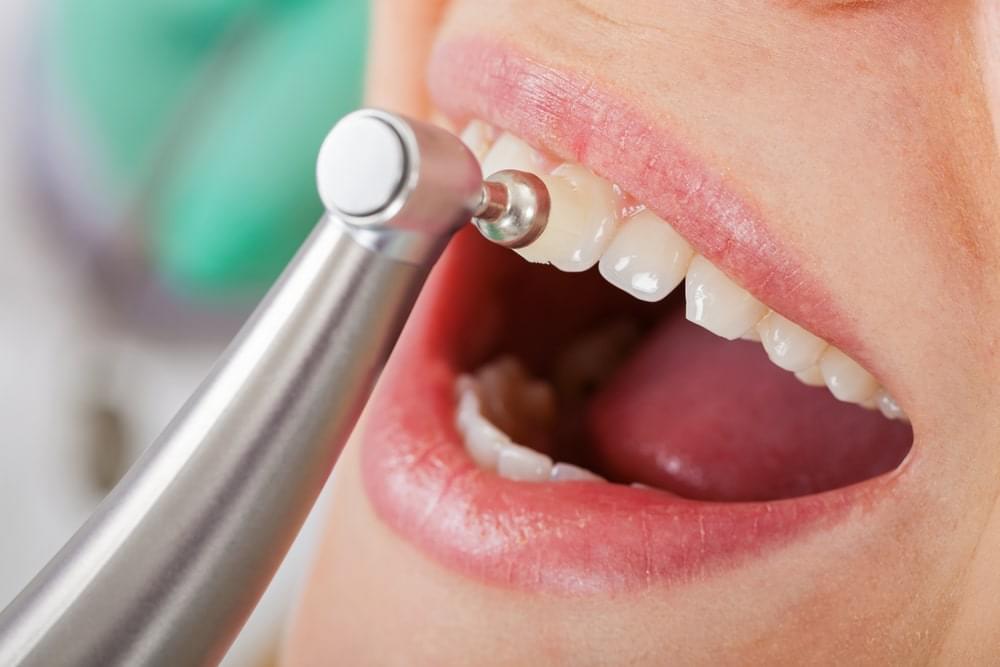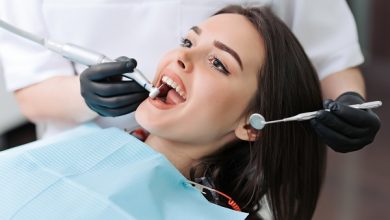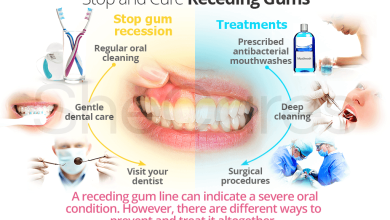Can Dental Cleaning Damage Gums?

Dental cleaning can potentially damage gums by causing irritation and inflammation due to aggressive techniques or underlying gum disease. Dental cleaning involves the removal of plaque and tartar from the teeth and gum line, which helps prevent gum disease and tooth decay.
However, if the dental cleaning is performed with excessive force or if there are existing gum issues like periodontitis, it can lead to gum damage. The dentist or dental hygienist must use gentle and proper techniques during the cleaning process to ensure the health of the gums.
Regular dental cleanings and proper oral hygiene at home can help maintain healthy gums and prevent any potential damage.

Credit: lincolndentalcenter.ca
The Importance Of Dental Cleaning
The Importance of Dental Cleaning: Regular dental cleanings play a vital role in maintaining optimal oral health. By removing plaque and tartar buildup, these cleanings help prevent the development of gum disease and potential damage to the gums.
Benefits of professional cleanings:
- Removal of plaque and tartar: Professional cleanings effectively eliminate plaque and tartar, which cannot be completely removed by regular brushing and flossing.
- Gum health: By removing plaque and tartar, dental cleanings help prevent gum inflammation and reduce the risk of gum disease.
- Early detection of oral issues: During a dental cleaning, a dentist or hygienist can identify early signs of dental problems such as cavities, gum disease, and oral cancer, allowing for prompt treatment.
- Preventing bad breath: Regular cleanings help eliminate the bacteria responsible for causing bad breath, leaving your mouth feeling fresh and clean.
- Overall oral health: Dental cleanings contribute to better oral health, maintaining the strength and longevity of your teeth and gums.
In conclusion, regular dental cleanings are crucial for preserving gum health and preventing potential damage. Professional cleanings offer a range of benefits, from removing plaque and tartar to early detection of oral issues. By prioritizing dental cleanings, you can maintain optimal oral health and enjoy a healthy, beautiful smile.
Understanding Dental Cleaning
Dental cleaning plays a crucial role in maintaining oral health. During a dental cleaning, a dental hygienist carefully removes plaque and tartar buildup from the teeth and along the gumline. This process helps to prevent gum disease and tooth decay.
The dental hygienist plays a crucial role in ensuring a thorough cleaning. They use specialized tools, such as scalers and polishing instruments, to remove plaque and tartar effectively. By reaching areas that brushing and flossing alone cannot, they aid in maintaining optimal oral hygiene.
A thorough cleaning is essential for preventing gum disease. Plaque buildup can lead to inflammation and infection of the gums, which can then progress into gum disease if left untreated. Regular dental cleanings can help identify early signs of gum disease and prevent further complications. It is important to note that while some discomfort or mild bleeding may occur during the cleaning process, it is temporary and should resolve quickly.
Overall, dental cleaning is a necessary and beneficial procedure for maintaining oral health. Regular visits to the dental hygienist are essential for a thorough cleaning and early detection of any potential issues.
Can Dental Cleaning Damage Gums?
Factors that may contribute to gum damage:
| Aggressive cleaning techniques | Using excessive force during dental cleaning can lead to gum damage. Vigorous brushing or improper scaling can result in irritation and inflammation of the gums. |
| Improper use of dental tools | Using dental tools incorrectly can cause harm to the gums. Incompetent handling of instruments such as scalers or curettes can result in unintended damage to the gum tissue. |
| Inadequate training of dental professionals | Dental professionals must receive proper training to perform dental cleaning procedures safely. Insufficient knowledge or lack of experience may increase the risk of causing damage to the gums. |
| Potential risks and complications | Dental cleaning, while generally safe, can carry potential risks and complications. Some individuals may be more susceptible to gum problems, such as gum irritation, recession, or tissue damage. |
| Gum irritation and inflammation | Improper dental cleaning techniques or the presence of underlying gum issues can result in gum irritation and inflammation. This can cause discomfort and potential damage to the gum tissue. |
| Gum recession | Aggressive cleaning or improper tool usage can contribute to gum recession. When the gum tissue pulls away from the teeth, it can expose the tooth roots and lead to further oral health problems. |
| Damage to gum tissue | If dental cleaning is performed without proper care, it can potentially damage the delicate gum tissue. This can result in pain, bleeding, and other gum-related complications. |
It is crucial to choose a knowledgeable and skilled dental professional who follows appropriate cleaning techniques and prioritizes patient safety to minimize the risk of gum damage during dental cleanings.
Prevention And Minimization Of Gum Damage
Preventing and minimizing gum damage during dental cleaning is essential for maintaining your oral health. Finding a skilled dentist is of utmost importance as they have the expertise to perform the cleaning process effectively. Regular dental check-ups allow for the early detection of any potential issues and enable you to communicate openly with your dentist.
During dental cleanings, there are techniques that dentists can employ to minimize gum damage. They use specialized tools and instruments to remove plaque and tartar while being careful not to harm the delicate gum tissues. By employing gentle movements and ensuring proper technique, dentists can reduce the risk of gum irritation or injury.
Overall, it is crucial to prioritize gum health during dental cleanings. By finding a skilled dentist and maintaining regular check-ups, you can ensure that your gums stay healthy and minimize any potential damage during the cleaning process.
Caring For Your Gums After A Dental Cleaning
Proper gum care after a dental cleaning is essential to maintain your oral health. Following these tips can help ensure the health and well-being of your gums:
- Proper Oral Hygiene Routine: Brush your teeth at least twice a day for two minutes each time, using a soft bristle toothbrush. This gentle approach will prevent potential damage to your gums while effectively removing plaque and debris.
- Usage of Sensitive Toothpaste/Mouthwash: If you experience gum sensitivity after a dental cleaning, consider using toothpaste and mouthwash specifically designed for sensitive teeth and gums. These products can help soothe any discomfort.
- Regular Dental Check-ups: Follow up your dental cleaning with regular check-ups to ensure any potential gum issues are addressed promptly. Your dentist can provide personalized advice and treatments to maintain optimal gum health.
By following these simple tips, you can take care of your gums after a dental cleaning and promote a healthy, confident smile.
Frequently Asked Questions On Can Dental Cleaning Damage Gums?
Can Dental Cleanings Cause Gum Recession?
Dental cleanings do not cause gum recession. In fact, they can help prevent it by removing plaque and tartar buildup that can lead to gum disease. Regular cleanings are essential for maintaining good oral health and preventing gum recession.
How Long Does It Take For Gums To Heal After Cleaning?
Gums usually take around one to two weeks to heal after a cleaning. The healing time may vary based on the individual’s oral health and the severity of the clean. Adequate oral hygiene can help to speed up the healing process.
Are Dental Cleanings Bad For Your Teeth?
Dental cleanings are not bad for your teeth. In fact, they are essential for maintaining optimal oral health. Regular cleanings help remove plaque and tartar buildup, preventing gum disease and tooth decay. Dentists use safe and gentle techniques to ensure your teeth remain healthy and strong.
What Are The Disadvantages Of Teeth Cleaning?
Teeth cleaning may cause temporary tooth sensitivity and gum irritation. However, these discomforts are usually mild and resolve quickly. In rare cases, excessive cleaning can weaken tooth enamel. Overall, the benefits of teeth cleaning outweigh the potential disadvantages.
Conclusion
To sum up, while dental cleaning can cause temporary discomfort or sensitivity, it is unlikely to cause long-term damage to the gums when performed by a trained professional. Regular dental cleanings play a crucial role in maintaining overall oral health and preventing gum disease.
However, if you have any concerns or experience persistent pain or bleeding, it is important to consult your dentist for appropriate guidance and treatment. Remember, a healthy smile begins with proper oral hygiene and regular dental visits.





